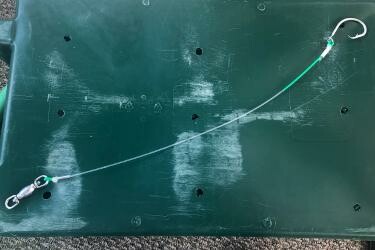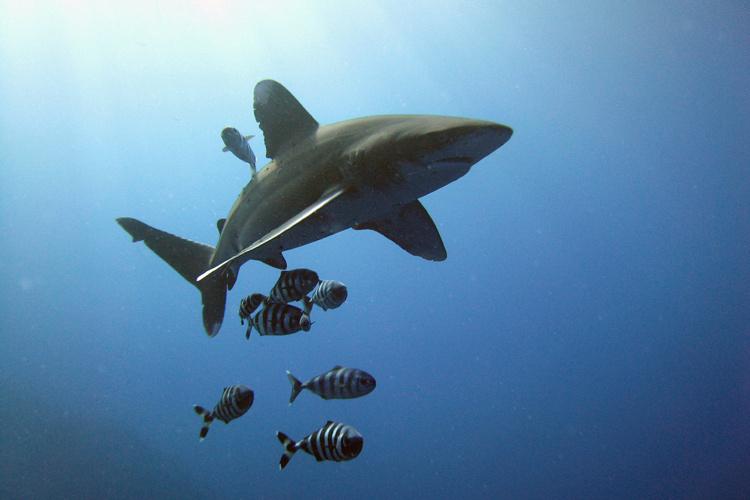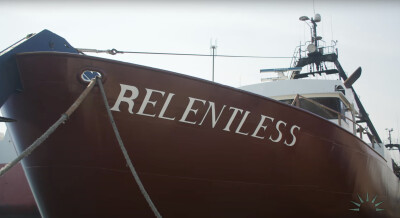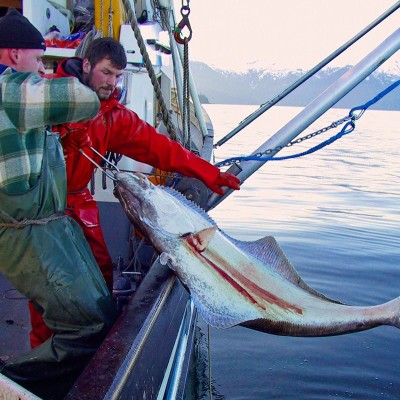Hawaii’s deep-set longline fleet is completing its changeover from wire leaders to nylon monofilament, a process that fishermen started on their own and is expected to reduce bycatch and mortality of threatened oceanic whitetip sharks by 30 percent.
A new federal regulation effective May 31 will prohibit the use of wire leaders in the fishery, formally instituting the industry-led initiative.
Wire leaders have been used so hooked fish can’t break off, and to make gear safer for fishermen. But even the sharp-toothed oceanic whitetip sharks can’t bite through them, meaning fishermen must release them, a dangerous process for both fish and fishermen.
Switching to nylon means more sharks can break off, or be freed by fishermen simply cutting the leaders close to the hooks. Research suggests cut-off hooks simply work their way out of the sharks’ mouths or rust away with little consequence to the sharks.
Once one of the most abundant shark species, the oceanic whitetip shark today is listed as threatened under the federal Endangered Species Act.
The switch to nylon leaders is expected to increase survival of hooked sharks by more than 30 percent, and “would not have been possible without the help of the local fishing industry and the Western Pacific Fishery Management Council,” according to a statement from the National Marine Fisheries Service.
The Hawaii Longline Association, representing tuna longline fishermen in the area, took the initiative to stop using wire leaders when deep-set longline fishing when its members voluntarily phased out wire leaders starting in November 2020, according to HLA Executive Director Eric Kingma.
“Our members—which include all of the Hawaii-based longline fleet of around 145 vessels—don’t want to catch sharks,” Kingma said in a joint statement with NMFS. “While the amount of fishing effort by Hawaii vessels is small compared with foreign fleets, we continue to work with our members and researchers on innovative methods to minimize the impacts of our fishery on these sharks and other protected species.”

“The Hawaii fishing fleet sets the standard for longline tuna fishing, with high levels of observer coverage and strong regulations to limit the effects of the fishery on protected species,” said Michael Tosatto, regional administrator at the NMFS Pacific Islands Regional Office. “These new regulations to protect oceanic whitetip sharks continue this long legacy of responsible fishing in the Pacific Islands region. We hope fishing fleets around the world will adopt these practices.”
“Conservation measures are most successful when the affected fishermen are involved from the beginning,” said Kitty Simonds, executive director of the Western Pacific Fishery Management Council. “The HLA initiative to adopt nylon leaders is a practical and effective solution, and a great example of the Magnuson-Stevens Act bottom-up process in action.”
In 2020, the council formed a working group of scientists, resource managers, fishery experts, and fishermen to address impacts to oceanic whitetip sharks. The group endorsed the industry’s proposal to end the use of wire leaders, and in June 2021, the Council recommended that NMFS create prohibit them.
It also recommended requiring fishermen in all Western Pacific longline fisheries to remove as much fishing gear as possible from released oceanic whitetip sharks. Those rules take effect May 31 in the U.S. Pacific Islands region.







